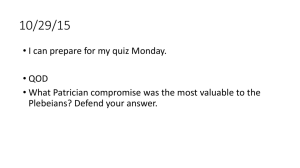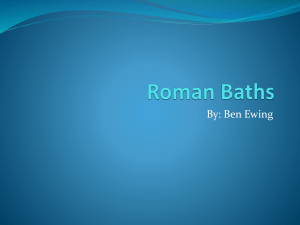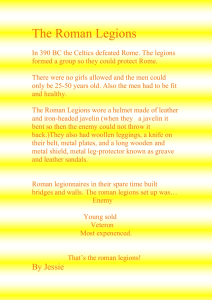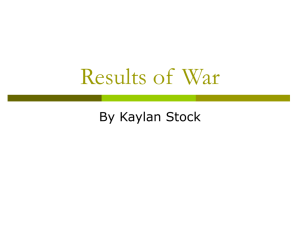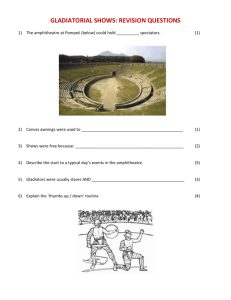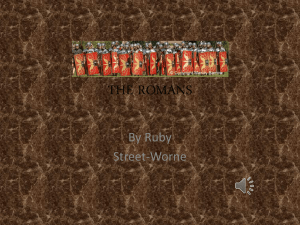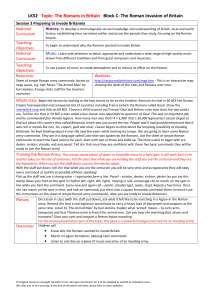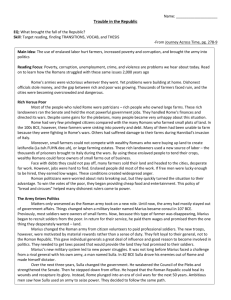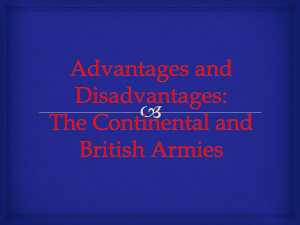Ancient Rome - Portlaoise College
advertisement
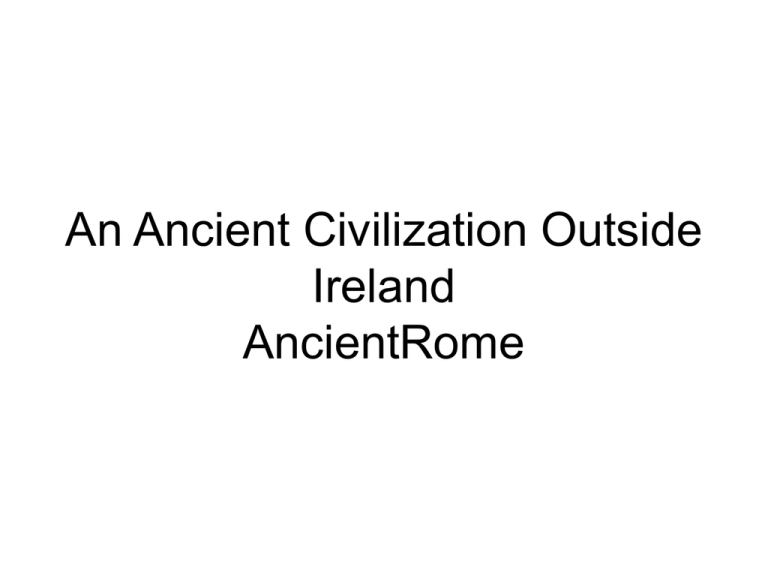
An Ancient Civilization Outside Ireland AncientRome M S C P A Roman Society Roman Society The Emperor Ruling Classes Well Off Plebeians Poorer Plebeians Unemployed Slaves (Non Persons) Patricians Doctors Architects Money Lenders Property Dealers Shopkeeper Carpenters Jewellers Bakers Coopers Tile Makers Tanners Weavers Potters Dole Heavy work House work Building Road building Army Mining Farming Generals Senators Also Teachers and Doctors Arts and Crafts Work done by the Plebeians • • • • • • • • • Bakers Jewellers Glassworkers Tile makers Carpenters Shopkeepers Doctors Architects Soldiers • Weavers (made cloth) • Coopers (made barrels) • Tanners (made leather) • Potters (made pottery) • Sculptors • Artists (made frescoes and mosaic floors) Gladiators The Colosseum Baths Public Baths • 900 baths in Rome • Public baths • Separate beths for men and women • Cheap • Free for children • Tepidarium • Caldarium • Frigidarium • Gymnasium • Library Circus Maximus Circus Maximus 250,000 people Spina The Roman Empire How was the Roman Army organised? • Main part of the army was the LEGION. • There were 30 legions in the Roman army • Each was made up of 5000 legionaires. How the Roman Army was organised • The legions were divided into centuries • The centuries were commanded by a centurion • Centuries originally had 100 men How the Roman Army was organised • The legions were divided into ………… • Each one was commanded by a …………. • ………….originally had a 100 men • Cent means ……………. How to become a Legionary! • You had to be a Roman citizen • You had to be physically fit and 1.6m tall • You were expected to stay in the army for 25 years Training / Discipline • 30 mile march every day • Disobedience flogged • Mutiny – decimated • They build army camps, roads, aquaducts Artifacts
